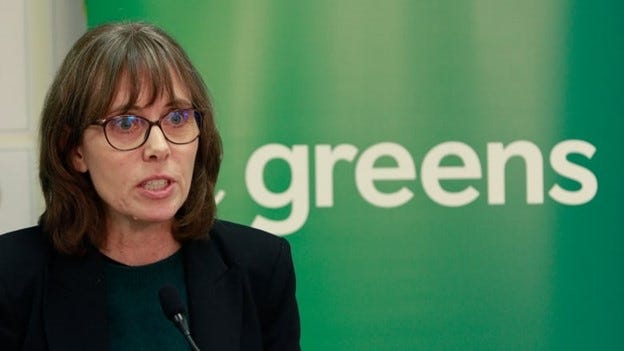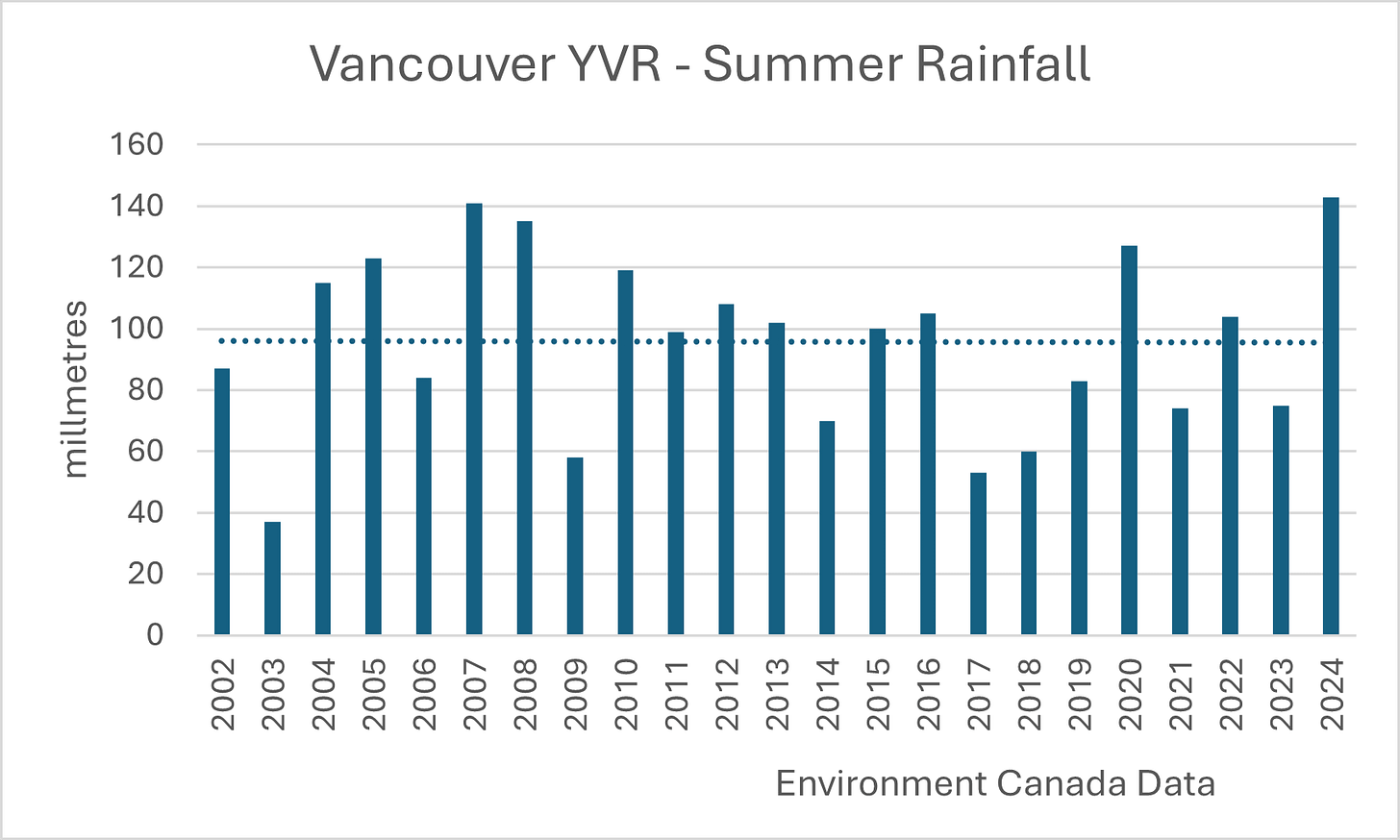All Wet
Following her election loss on October 19, foolhardy voters were chastised by BC Green Party leader Sonia Furstenau:
Chad Hipolito/The Canadian Press
“It’s a strange time in politics when during an atmospheric river people come out and vote for a party that’s denying the reality of climate change, but hey, that’s just where we’re at,” she said.
There is no doubt it was extremely wet that day, especially in the Burrard Inlet area which usually gets the highest volumes of Vancouver precipitation. That significant rainfall and the damage it caused, also spurred an op-ed in the Times Colonist titled: Atmospheric rivers require new approach to water management
The newspaper calls the piece: A commentary. Shapiro is principal at environmental consultancy Shapiro & Company and Morris is director of B.C. Water Legacy and a steering member of the Watershed Security Coalition.
Shapiro and Morris are Consultants who make their money from environmental grants and projects. They have seized the opportunity to use the recent heavy rainfall in the Vancouver area to alarm the public with respect to their position that Climate Change is responsible for an increase in extreme weather. They contend:
It likely comes as no surprise that our overheated climate is the culprit. Warm air holds more water vapour, leading to heavier rainfall while also increasing evaporation, which dries out the land. The same process causing wetter winters is also producing drier summers.
This shift in our water cycle has created a new cycle of extreme downpours and severe drought — one our human-built infrastructure was never designed to accommodate.
But was the so-called overheated climate responsible for Vancouver’s most recent Atmospheric River? If so, then we should see the number and size of our rainfall events increasing.
Environment Canada’s Vancouver Harbour weather station on Burrard Inlet has precipitation records going back 100 years to 1925. During that time there have been 42 intense rainstorms that included at least 100 mm falling over a 5 day period.
From 1925 to 1974 (earliest 50 years) there were 25 such events, and from 1975 to 2024 (latest 50 years) there were just 17. So, frequency has dropped off contrary to the op-ed position. What about intensity?
In December 1972 there were back-to-back extreme rainfall events. 113.0 mm fell on December 17, followed by 203.2 mm on December 26 – the overall 1 day record. The wettest single days over the last 100 years in Vancouver were:
1 day 1972 203.2 mm (post-Xmas)
2003 141.8 mm
1968 134.6 mm
2024 116.2 mm
1972 113.0 mm (pre-Xmas)
October 2003 holds the record for having the most intense 2 day total:
2 day 2003 219.6 mm
1972 203.2 mm (post-Xmas)
2005 177.2 mm
1968 172.4 mm
1935 165.3 mm
2024 153.1 mm
The greatest sustained accumulation over 3, 4 and 5 days took place in January 1935:
3 day 1935 237.2 mm
2003 221.6 mm
2005 216.8 mm
1972 203.2 mm (post-Xmas)
2024 189.1 mm
4 day 1935 287.5 mm
2005 244.0 mm
2003 229.0 mm
1972 212.1 mm (post Xmas)
2024 190.3 mm
5 day 1935 336.5 mm
2005 264.4 mm
2003 258.4 mm
1979 229.9 mm
1972 213.3 mm (post-Xmas)
1972 196.9 mm (pre-Xmas)
2024 196.5 mm
While the October 2024 Atmospheric River was indeed intense and damaging, it wasn’t particularly historic. So, neither frequency nor intensity of extreme rainfall in Vancouver should be linked to any alleged Climate Change.
And what about the Shapiro/Morris assertion that we now have drier summers? They state: The same process causing wetter winters is also producing drier summers.
In opposition to that claim , this year’s meteorological summer (June, July & August) was the wettest since 2001. The years since then have been up and down but as the following graph shows, there is no trend:
The two Consultants irresponsible for this Times Colonist op-ed don’t want you to know all the data. They benefit if the concern stirred up translates into additional donor-advised funding from foreign foundations, additional virtue-signal grants from government, and additional development-guilt expenditure from the private sector … all supported by additional special-interest-misinformation from the media.



